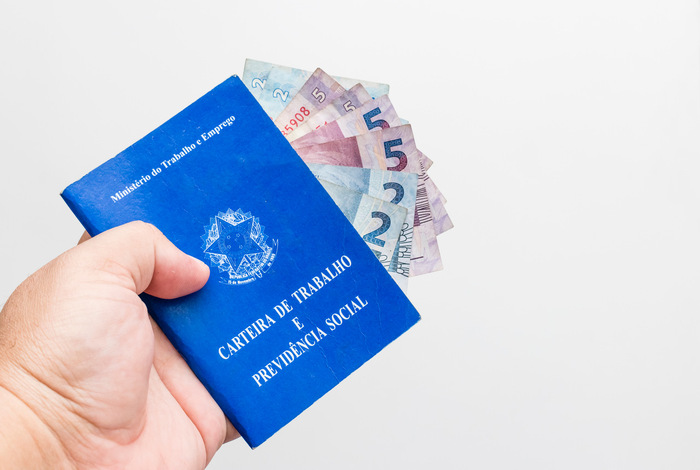Alimony is a fundamental right in Brazil, guaranteed by the Federal Constitution, which aims to ensure the support of dependents who do not have their own means of subsistence.
Adverts
Recently, the decision of the Federal Supreme Court (STF) to exempt alimony from Income Tax (IR) brought significant changes for beneficiaries and payers. This article addresses how alimony works in Brazil, its legal implications and the recent exemption from IR on these amounts.
What is alimony?
Alimony is an amount regularly paid by one person (the feeder) to another (the feeder) to guarantee the latter's support.
This payment is commonly determined in cases of separation or divorce, when one of the spouses needs to support minor children, ex-spouses or other dependents unable to support themselves.
How is alimony calculated?
The calculation of alimony takes into account several factors, including the child's needs, the child's financial capacity and the standard of living previously maintained by the family. In general, the amount is stipulated by the judge based on documentary evidence and, often, witness statements.
Types of alimony
The pension for minor children is the most common and aims to cover expenses with education, health, food, leisure and other essential needs for the child's development, such as clothing, transport, and extracurricular activities.
This type of pension is considered a priority, as it is based on the principle of the best interests of the child, ensuring that children have adequate conditions for growth and development.
Pension for ex-spouses can be determined in cases where the ex-spouse does not have the means to support themselves, generally for a specific period.
This pension aims to help the ex-spouse maintain a standard of living similar to that enjoyed during the marriage, until he or she is able to reintegrate into the job market or obtain another source of income.
Furthermore, the pension for other dependents includes incapacitated dependents, such as elderly parents or older children with some physical or mental disability.
This type of pension recognizes that dependents who are unable to provide for themselves, due to health conditions or advanced age, require ongoing financial support to cover expenses for medical care, medication, and other basic needs.
Judicial concession process
For alimony to be determined, it is necessary to file a lawsuit. The process can be initiated by the interested party or by their legal representative. During the procedure, the judge may grant provisional maintenance, which will be adjusted in the final sentence.
Compliance and enforcement
Failure to pay alimony can lead to severe legal consequences, including civil imprisonment for the debtor. Furthermore, measures such as the seizure of assets and blocking of bank accounts may be adopted to ensure compliance with the obligation.
Recent changes: Exemption from income tax on alimony
In August 2022, the STF decided that the amounts received as alimony are no longer taxable by Income Tax. This decision, resulting from Direct Action of Unconstitutionality (ADI) nº 5422, brought financial relief to many pension beneficiaries, who were previously obliged to pay tax on these amounts.
Implications of the decision
With the IR exemption, beneficiaries can now declare the amounts received as “Exempt and Non-Taxable Income” in their annual income tax return. This change has a direct impact on beneficiaries' disposable income, increasing their purchasing power and easing the tax burden.
How to rectify past statements
Those who paid IR on child support in the last five years can rectify their income tax returns and request a refund of the amounts unduly paid. To do this, they must access the Federal Revenue e-CAC Portal and adjust the values in the “Exempt and Non-Taxable Income” form.
Specific procedures for rectification
To rectify the declaration, the taxpayer must access the Federal Revenue platform and move the pension income received to the “Exempt and Non-Taxable Income” section.
Additionally, it may be necessary to submit an electronic refund request if the taxpayer is entitled to a refund. It is important to follow all the steps indicated by the IRS to avoid future problems, such as falling through the cracks.
Challenges and criticism
Despite the positive changes, there are still challenges to be faced. The IRS will need to adapt its systems to reflect the new exemption and prevent taxpayers from falling through the cracks when rectifying past declarations.
Furthermore, there are ongoing discussions about the fiscal impact of this decision, as the Union will no longer collect significant annual amounts.
Future perspectives
Experts believe that the STF's decision is an important step towards ensuring social and fiscal justice in Brazil. However, it is essential that both those feeding and those receiving food are well informed about their rights and duties to avoid future problems.

The decision to exempt alimony from IR should have a significant impact on public finances. Estimates indicate that the government will no longer collect around R$ 1.05 billion per year.
Furthermore, amounts unduly paid in recent years could result in an additional tax impact of up to R$ 6.5 billion as beneficiaries seek restitution.
Adaptation of Federal Revenue systems
For the new rules to be fully implemented, the IRS will need to update its systems and guide taxpayers on the correct procedures for declaring alimony as exempt income.
This process can take some time and requires attention from both taxpayers and accounting professionals.
Conclusion
Alimony is an essential right to guarantee the dignity and support of dependents in Brazil. Recent changes in tax legislation, which exempt these amounts from Income Tax, represent a significant advance in protecting the rights of beneficiaries.
It is crucial that everyone involved is aware of the new rules and knows how to proceed to benefit from the exemptions and adjust their declarations correctly.
With a clear understanding of the obligations and rights associated with child support, and now with tax relief, it is expected that many families can have a better quality of life and more financial security.

